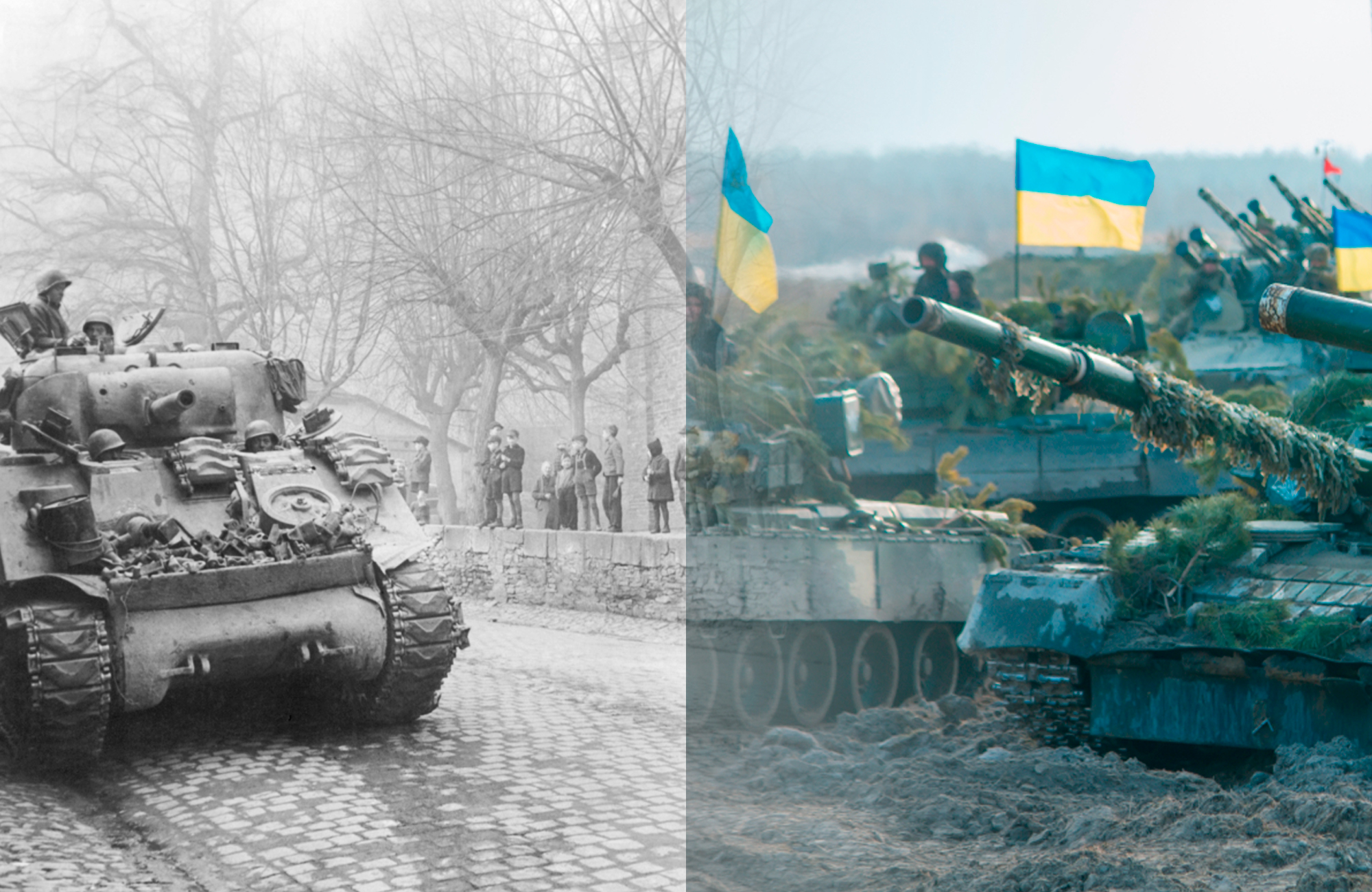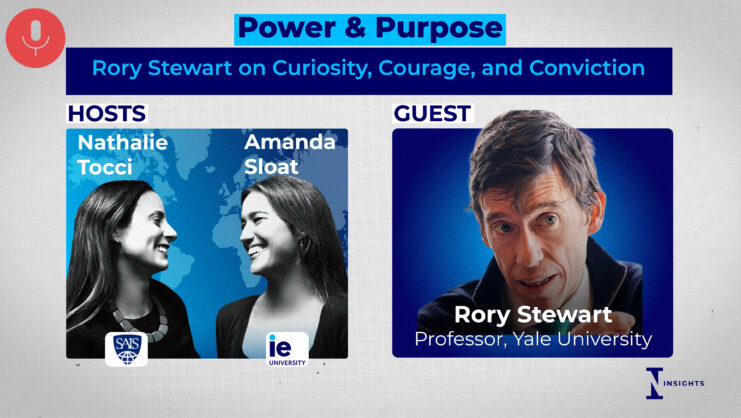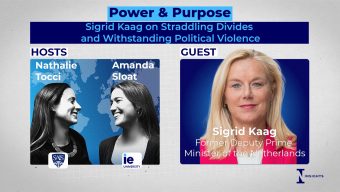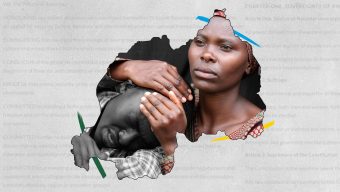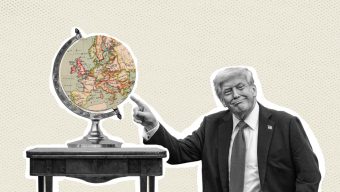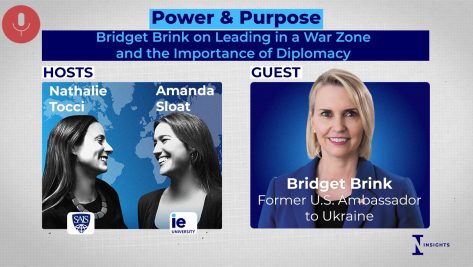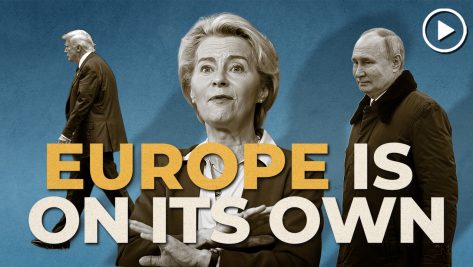On February 24, Russian troops invaded Ukraine and this act of aggression against a sovereign state has provoked the biggest crisis in Europe since the outbreak of the Second World War. For this reason, it recalls to European collective memory another infamous day, the first of September 1939, when German troops invaded Poland. President Putin has argued that there are reasons of national interest and security that justify his current invasion; and, in a desperate attempt to create a convincing narrative, he has claimed to be “denazifying” Ukraine. Yet, the fact is that Vladimir Putin’s style of leadership is increasingly similar to that of Adolf Hitler. Both leaders are characterized by extreme nationalism, the need to refer to a glorious imperial past in order to justify their power, and they share an unscrupulous way of governing based on the principle that the ends always justify the means.
Hitler regarded Germany’s defeat in the First World War as an intolerable humiliation and he devoted the rest of his life to rebuilding the German empire and taking revenge on those he considered responsible for its disappearance. Putin described the collapse of the Soviet Union as the greatest geopolitical catastrophe of the twentieth century, and it seems increasingly evident that his aim is to recover the frontiers of 1991. The similarities continue: Hitler justified his invasions during the 1930s by alleging he was recovering territories that historically belonged to Germany and referring to the concept of lebensraum, the vital space due to Germans as superior people. This allowed him to occupy the Rhine in 1936, and then invade Czechoslovakia in 1938 and finally Poland in 1939. Putin has focused on recovering territories of the Russian empire, but as this may seem outdated nostalgia in the twenty-first century, he falls back on the idea of a security area, buffer states he aims at establishing under Russian surveillance between the Russian frontier and the European Union. This has served as justification for three invasions: first Georgia in 2008, then the Crimean peninsula in 2014, and now Ukraine.
As Putin has repeated Hitler’s aggressive policy, the reaction of Western leaders has also been strikingly similar to that of the 1930s. Their attitude towards Hitler was that of appeasement, for reasons of self-interest, the fear that the Fuhrer inspired, and also the very respectable aim of avoiding war at all costs. They assuaged public opinion and fears by arguing that Hitler simply wanted to recover a few territories that had been historically German. But then Hitler took his aggression too far when he invaded Poland, as Putin has done with Ukraine. British Prime Minister Chamberlain promised peace with honor when he attempted to reach an agreement to avoid war against Germany in 1938. Churchill rebuked him, saying that he’d had the opportunity to choose between war and dishonor: “you chose dishonor and now you have war.” These words resonate now with a humiliated Western world as Russian troops march across Ukraine.
How far will Putin go in his obsession with expanding Russian influence in Eastern Europe?
There is one final similarity that the West must take into account between the events in the 1930s and the present. Hitler signed a pact with Stalin in 1939, before invading Poland, by which the country would be distributed between them. Putin met with Xi Jinping before invading Ukraine. We do not know if there was a secret agreement made at this meeting, but it is evident that the Russian leader has sought the support of the great Chinese power, before defying the West with this new invasion.
Putin is, to a certain extent, more dangerous for the West than Hitler was in 1939. The Russian leader controls the second largest nuclear arsenal in the world. This has allowed him to threaten any country standing in the way of Russian troops in Ukraine with “consequences you have never encountered in your history.” Another weapon at Putin’s disposal, which Hitler did not have is the internet, giving Putin’s regime the capacity to infiltrate a variety of conflicts and electoral processes in a way that weakens Western powers and the European Union. He is therefore capable of waging three different types of war against the West: conventional, nuclear, and cyber.
How far will Putin go in his obsession with expanding Russian influence in Eastern Europe and consolidating supremacy amongst great powers? Last week he threatened Finland and Sweden not to join NATO, so it is clear that this Russian Tsar is more unpredictable than ever. He has decided to revive the old policy of Tsarina Catherine the Great that the best way of guaranteeing the security of the Russian frontiers is by expanding them. The noble idea espoused by Mikhail Gorbachev in 1989 of creating “a common European home” in which Russia would be included has been buried by Putin, who aims to put up a new iron curtain in Europe to separate democracy from authoritarian rule. Ukraine will once more be locked in on the latter system and once imposed, this iron curtain may take a very long time, if ever, to be lifted.
So, war is back in Europe well into the twenty-first century, with a repetition of errors that were committed in the 1930s. In the same way that it would have been easier to stop Hitler in 1936 than in 1939, the West should have stopped Putin in 2014, when he seized Crimea. That was the moment to start arming Ukraine, reducing energy dependence on Russia, and imposing economic sanctions against Putin’s regime and its international network.
Just as in 1939, neither the Western world nor all those nations that support a peaceful international order based on national sovereignty can afford to lose this war. However, on this occasion they will be fighting a proxy war in which only the Ukrainians will confront the enemy. We do not have a Churchill in this war but we do have a rising hero in Ukrainian president Volodimir Zelensky, who has put his life on the line to lead his country’s defense. For this reason, the first duty of the West and those supporting Ukraine is to send weapons and all that is necessary to ensure that Ukraine is able to resist. Simultaneously, they must wage war via diplomatic and economic means, isolating Russia and applying the harshest economic sanctions that will hopefully lead the Russian people themselves to rise against the leader and the mafia state that has dragged them into a war against a brother nation. The future of Europe and the values it defends are at stake in Ukraine.
© IE Insights.



